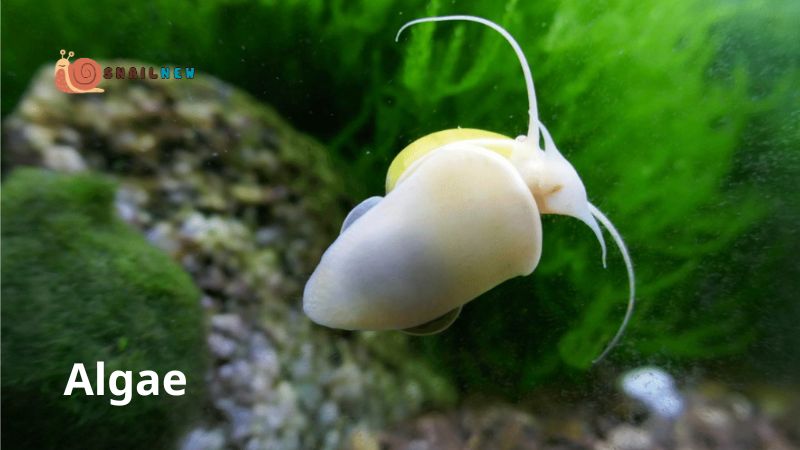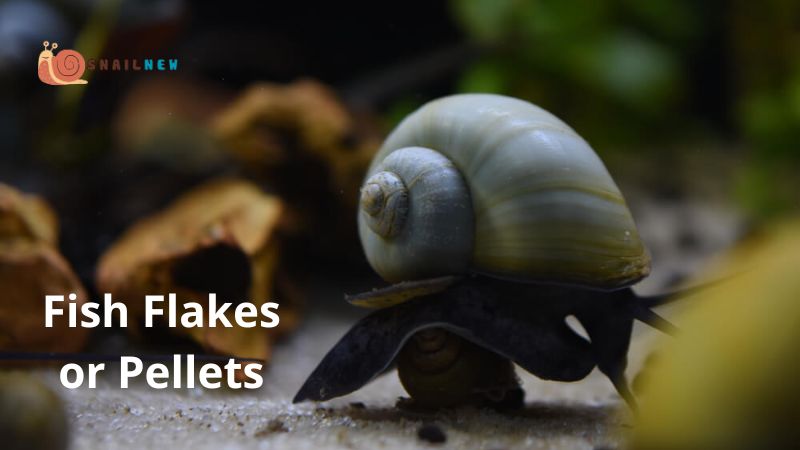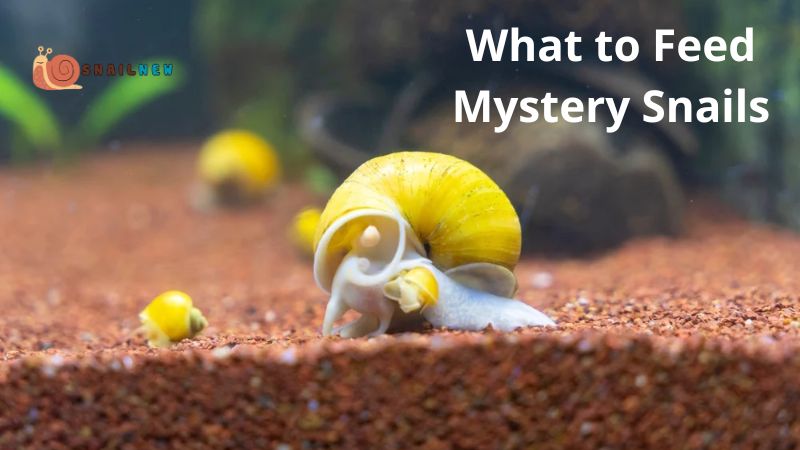Mystery snails, with their intriguing appearance and fascinating behavior, have become popular additions to many aquariums. These charming creatures are not only delightful to observe but also relatively easy to care for. However, one of the most common questions among mystery snail enthusiasts is: what to feed mystery snails? In this comprehensive guide, Snailnew will explore various dietary options to ensure these captivating creatures thrive in their aquatic habitat.
Understanding the dietary needs of mystery snails is essential for their health and well-being. As omnivores, they require a balanced diet consisting of both plant and animal matter to meet their nutritional requirements. By offering a diverse range of foods, aquarists can ensure that their mystery snails receive the essential nutrients they need to flourish.
Table of Contents
ToggleWhat to Feed Mystery Snails
1. Algae: A Natural Delight

One of the primary food sources for mystery snails in their natural habitat is algae. In aquariums, algae growth is inevitable and provides an excellent grazing opportunity for these snails. Aquarists can encourage algae growth by providing surfaces such as rocks, driftwood, or aquarium decorations where algae can thrive. Regularly clean these surfaces to maintain optimal algae levels, ensuring a steady food source for your mystery snails.
2. Vegetables: Nutritious and Delicious
Blanched vegetables are another staple in the diet of mystery snails. Zucchini, cucumber, spinach, lettuce, and kale are among the preferred options. To prepare vegetables for your snails, blanch them by briefly immersing them in boiling water until they soften. Once blanched, allow the vegetables to cool before placing them in the aquarium. Remember to remove any uneaten portions after a few hours to prevent water contamination.
3. Commercial Snail Food: A Convenient Option

For aquarists seeking a convenient and nutritionally balanced option, commercial snail food is readily available in pet stores. These specially formulated foods contain essential nutrients that support the health and vitality of mystery snails. Look for high-quality brands that offer a diverse blend of ingredients to ensure a well-rounded diet for your aquatic companions.
4. Calcium: Essential for Shell Health
Calcium is crucial for the growth and maintenance of mystery snail shells. Without an adequate source of calcium, snails may experience shell deformities or weakening. Aquarists can provide supplemental calcium through various means, including cuttlebone, calcium supplements, or crushed eggshells. Ensure that calcium sources are clean and free from contaminants before introducing them into the aquarium.
5. Fish Flakes or Pellets: A Surprising Treat

While primarily herbivorous, mystery snails can also consume small amounts of fish flakes or pellets. While these foods should not constitute the majority of their diet, they can serve as an occasional treat or supplement to their regular feeding regimen. However, ensure that the primary focus remains on providing plant-based foods to meet their dietary requirements.
6. Occasional Treats: Variety is Key
In addition to their staple diet, mystery snails can enjoy occasional treats such as blanched carrots, peas, or small amounts of fruit. These treats should be offered sparingly, as they contain higher levels of sugars and may lead to overfeeding if given in excess. Variety is key when it comes to treats, ensuring that your snails receive a diverse range of nutrients to support their overall health.
Monitoring Feeding Habits: Finding the Right Balance
It’s essential for aquarists to monitor the feeding habits of their mystery snails and adjust their diet accordingly. Overfeeding can lead to water quality issues, such as increased ammonia levels and algae blooms. Remove any uneaten food promptly to prevent contamination and maintain a clean and healthy aquarium environment.
Feeding Frequency: Finding the Optimal Schedule
Determining the optimal feeding frequency for mystery snails depends on various factors, including the size of the aquarium, the number of snails, and the presence of other tank inhabitants. As a general rule, feed adult mystery snails once a day, offering an amount of food they can consume within a few hours. For younger snails or smaller aquariums, feeding every other day may be sufficient.
Observing Behavior: Signs of a Healthy Diet
A well-fed mystery snail will exhibit active behavior, including grazing on surfaces, exploring the aquarium, and interacting with tank mates. If a snail appears lethargic or spends an excessive amount of time inactive, it may indicate an issue with its diet or overall health. Monitor their behavior closely and make adjustments to their feeding regimen as needed.
Water Quality: A Reflection of Diet
The diet of mystery snails directly impacts water quality in the aquarium. Overfeeding can lead to an accumulation of organic waste, resulting in elevated ammonia and nitrate levels. Regular water testing and maintenance are essential to ensure optimal water parameters and a healthy environment for your snails and other aquatic inhabitants.
Consulting a Vet: Expert Advice
If you’re unsure about the dietary needs of what to feed mystery snails or notice any concerning symptoms, don’t hesitate to consult a veterinarian with experience in exotic pets. They can provide personalized recommendations and guidance to ensure the health and well-being of your aquatic companions.
In conclusion, providing a varied and balanced diet is essential for the health and vitality of mystery snails. By offering a combination of algae, vegetables, commercial snail food, calcium supplements, occasional treats, and monitoring their feeding habits, aquarists can ensure that these captivating creatures thrive in their aquatic habitat. Remember, a well-fed mystery snail is not only a joy to observe but also a testament to your dedication as a responsible pet owner.


